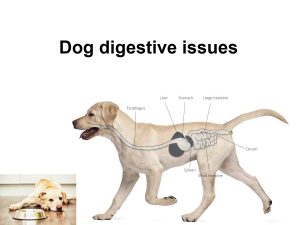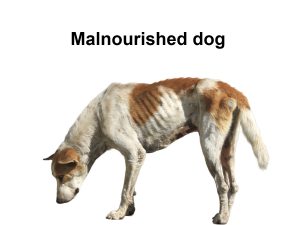Are you a dog owner who wants to ensure that your furry friend has a healthy digestive system? Just like in humans, gut health is incredibly important for dogs too. A healthy gut can lead to better overall health, improved digestion, and increased immunity. However, with so much information out there, it can be overwhelming to figure out how to improve your dog’s gut health naturally. But fret not! In this article, we will walk you through some simple and effective ways to promote a healthy gut for your beloved canine companion.
Understanding the Importance of Dog Gut Health
Before we dive into the strategies to enhance your dog’s gut health, let’s first understand why it is so crucial. The gut is home to trillions of bacteria, both good and bad, collectively known as the gut microbiota. When the balance of these bacteria is disrupted, it can lead to various health issues in your dog. A healthy gut microbiota plays a vital role in nutrient absorption, immune function, and even behavior.
When your dog’s gut is thriving, it can better digest food, absorb essential nutrients, and eliminate waste effectively. A healthy gut also helps prevent the overgrowth of harmful bacteria and pathogens, reducing the risk of infections and digestive disorders. Additionally, a strong gut can contribute to a robust immune system, keeping your furry friend protected against illnesses.
Feed a Balanced and Nutritious Diet
One of the most impactful ways to improve your dog’s gut health naturally is through their diet. Providing a balanced and nutritious meal essential to support a healthy digestive system. Here are some key pointers to keep in:
Choose High-Quality Dog Food
Opt for high-quality dog food that real ingredients and avoids fillers, artificial additives, and preservatives. Look for options that include animal protein as the main ingredient, as dogs are primarily carnivores. Reading the ingredient list can give you a good idea of the food’s quality.
Incorporate Probiotics and Prebiotics
Probiotics are beneficial bacteria that can promote a healthy gut by balancing the gut microbiota. Look for dog foods that contain natural probiotics, such as Lactobacillus and Bifidobacterium. Additionally, consider adding dog-friendly probiotic supplements to your furry friend’s diet.
Prebiotics, on the other hand, are dietary fibers that serve as food for the probiotics. They help nourish the good bacteria in the gut. You can find prebiotics in ingredients like chicory root, sweet potatoes, and oats.
Avoid Common Food Allergens
Pay attention to any food sensitivities or allergies your dog may have. Common allergens for dogs include wheat, soy, corn, and dairy products. If your dog is prone to allergic reactions, it’s best to avoid these ingredients and opt for hypoallergenic or limited-ingredient dog food.
Consider a Raw or Homemade Diet
Some dog owners prefer feeding their pets a raw or homemade diet to have greater control over the ingredients. However, it’s important to consult with a veterinarian or a canine nutritionist to ensure the diet is balanced and meets all of your dog’s nutritional requirements.
Understand the Role of Fiber
Fiber is a crucial nutrient that plays a significant role in maintaining a healthy gut. It promotes proper digestion, regulates bowel movements, and provides food for the beneficial bacteria in the gut. Here’s what you need to know about fiber for dogs:
Choose Fiber-Rich Foods
Incorporate fiber-rich ingredients into your dog’s diet, such as leafy green vegetables, pumpkin, sweet potatoes, and apples. These foods contain soluble and insoluble fiber, both of which are important for gut health.
Gradually Introduce Fiber
If your dog is not accustomed to a high-fiber diet, introduce fiber gradually to avoid digestive upset. Sudden dietary changes can lead to diarrhea or constipation. Start by adding small amounts of fiber-rich foods to their meals and gradually increase the portion over time.
Monitor Water Intake
Increased fiber intake requires an adequate amount of water to prevent constipation. Make sure your dog has access to fresh water throughout the day, especially when introducing more fiber into their diet.
Incorporate Bone Broth into the Diet
Bone broth is an excellent addition to your dog’s diet, especially when it comes to gut health. It is rich in gelatin and collagen, which can help soothe and heal the gut lining. Here’s how you can incorporate bone broth into your dog’s routine:
Homemade Bone Broth
Prepare bone broth at home by simmering animal bones (chicken, beef, or fish) for several hours. Make sure to remove any seasoning or additives before offering it to your dog. You can find various homemade bone broth recipes online.
Store-Bought Bone Broth
If you don’t have the time to make homemade bone broth, you can also find high-quality, pre-packaged bone broth options at pet stores or online retailers. Ensure that the bone broth is free from artificial additives and preservatives.
Exercise and Stress Management
Believe it or not, exercise and stress management play a significant role in your dog’s gut health. Here’s why:
Regular Exercise
Regular physical activity not only keeps your dog fit but also stimulates healthy digestion. Exercise helps maintain proper muscle tone in the digestive tract, preventing common issues like constipation or bloating. Aim for daily walks or play sessions to ensure your pup gets the exercise they need.
Manage Stress and Anxiety
Stress can impact your dog’s gut health negatively. Just like humans, dogs can experience stress and anxiety, which can disrupt their digestive system. Provide a calm and secure environment for your dog and consider using stress-relieving techniques like puzzle toys, soothing music, or aromatherapy to help them relax.
Minimize Exposure to Toxins
Toxins and chemicals present in the environment can harm your dog’s gut and overall well-being. Taking steps to minimize their exposure can go a long way in improving their gut health. Here’s what you can do:
Use Non-Toxic Cleaning Products
Avoid using harsh chemical-based cleaners around your dog’s living spaces. These chemicals can be absorbed through contact or inhalation, potentially causing harm. Opt for pet-safe and non-toxic cleaning products to ensure a safer environment for your furry friend.
Be Mindful of Pesticides
When taking your dog for walks or playing in outdoor areas, be aware of pesticide usage. Pesticides are commonly found on lawns, gardens, and public spaces. Try to choose pesticide-free areas when possible or clean your dog’s paws after being in potentially treated areas.
Limit Exposure to Household Chemicals
Keep your dog away from areas where you use household chemicals, such as laundry detergents, air fresheners, or pesticides. These substances can be harmful if ingested or inhaled.
Be Mindful of Medications
Certain medications can have a negative impact on your dog’s gut health. While medications are sometimes necessary for your dog’s well-being, it’s important to be aware of potential side effects, specifically in relation to the gut. Here are a few things to keep in mind:
Antibiotics
Antibiotics are commonly prescribed to treat infections in dogs. While they can be life-saving, they also have the potential to disrupt the gut microbiota by killing both harmful and beneficial bacteria. If your dog needs to take antibiotics, talk to your veterinarian about probiotic supplements to support gut health during and after the course of treatment.
Steroids and NSAIDs
Steroids and Non-Steroidal Anti-Inflammatory Drugs (NSAIDs) can also have gastrointestinal side effects. These medications can cause stomach ulcers or gastrointestinal bleeding in some cases. It’s vital to follow your veterinarian’s instructions carefully when administering these medications to your dog.
Regular Vet Check-Ups
Regular vet check-ups are essential to monitor your dog’s overall health, including their gut health. Your veterinarian can identify any potential issues early on and provide appropriate guidance and treatment. Don’t skip those annual wellness exams or hesitate to reach out to your vet if you notice any changes in your dog’s digestive system or overall well-being.
Takeaway Message
Promoting a healthy gut for your dog is a journey that requires a holistic approach. By providing a balanced diet, incorporating fiber-rich foods, adding bone broth, managing stress, minimizing exposure to toxins, being mindful of medications, and regularly visiting your vet, you can significantly improve your dog’s gut health naturally. Remember, a healthy gut leads to a happy and thriving furry friend! So, start implementing these simple tips today and watch your dog’s overall well-being soar.


